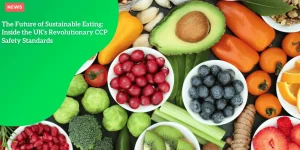From Boom to Bust: 7 Key Reasons Major Food Companies Are Removing Plant-Based Options
Anúncios
The Vegan Market Paradox
The vegan population in the UK is on the rise, with an estimated 2.5 million people expected to identify as vegan by 2024, constituting about 4.7% of the population.
This surge is partly driven by initiatives like Veganuary, which saw around 707,000 participants last year.
Anúncios
However, this growth presents a paradox: despite the increasing number of vegans, sales of meat alternatives have declined by 21% through June 2023.
This unexpected trend suggests that market dynamics are more complex than simple population growth.
Anúncios
Decline in Meat Alternative Sales
The declining sales of meat alternatives indicate a disconnect between the growing vegan population and consumer purchasing behavior.
Data from consumer intelligence company NIQ highlights that sales of chilled and frozen meat alternatives dropped by about 21% compared to two years earlier.
This decline contrasts with a modest 0.8% increase in dairy-free milk sales in 2022, showing a nuanced consumer interest in plant-based products.
Decrease in Google Search Trends
Google search trends reflect this diminishing interest.
Terms related to veganism, such as “veganuary” and “Vegan diet,” peaked around late 2019 and early 2020 but have been declining ever since.
This suggests that while the vegan population grows, public interest in vegan topics may be plateauing or even waning.
Implications for the Vegan Market
These trends highlight significant challenges for the vegan market.
There is a need to understand why consumer demand is not aligning with the increasing vegan population.
Factors like cost, convenience, and product variety play crucial roles in consumer choices.
As we explore these aspects further, it becomes clear that the current market dynamics require innovative solutions to ensure sustainable growth in the vegan sector.
Transition
Moving forward, understanding the impact of major food brands withdrawing vegan products will shed light on broader market dynamics.
This exploration into the actions of brands like Heinz and Greggs will help unravel the factors driving these changes.
Major Brand Withdrawals
Impact of Product Withdrawals
The discontinuation of various vegan product lines by major brands illuminates a significant shift in the market landscape.
As culinary trends and consumer tastes evolve, companies like Heinz have opted to remove their vegan salad cream.
Similarly, Greggs, famous for its vegan steak bake, has taken this product off the menu to better align with changing customer preferences.
Examples of Scaling Back
Other brands have followed suit, reducing their vegan offerings.
Quorn, for instance, ceased its chilled bacon slices.
Even major players like Oatly, Nestlé, and Heck have scaled back, and Nestlé has reduced its dairy-free milk range.
Innocent also humorously noted the lack of demand when it scrapped its dairy-free milk range in 2023, mentioning that only five people had bought the product.
Reasons Behind the Decline
This strategic retreat is primarily due to declining sales.
Sales in meat alternatives have dropped about 21% in the past two years.
The higher price of vegan products, roughly a third more expensive than their meat counterparts, further exacerbates the situation.
Such costs make it difficult for budget-conscious consumers to sustain a vegan diet, which contributes to the declining interest.
Limited Consumer Appeal
Moreover, the lack of originality in vegan options has not gone unnoticed.
Consumers, like Sophie, often feel that the choices available are limited and uninspiring, mainly revolving around burgers and pasta.
This dietary monotony can drive people back towards traditional eating habits.
As brands reevaluate and adjust to shifting customer preferences and market demands, understanding these dynamics becomes crucial.
Moving forward, exploring alternative strategies to make vegan diets more diverse and affordable will be key in sustaining the interest and growth of this market segment.
Price Point Problems
Expensive Vegan Alternatives
One of the primary issues deterring potential consumers from adopting vegan diets is the higher cost of vegan alternatives.
In general, these meat-free products are roughly one-third more expensive than their traditional meat counterparts.
Supermarket comparisons highlight that items like vegan sausages, burgers, and milk often carry a premium price tag, making them less accessible to a broader audience.
Impact on Grocery Bills
This price discrepancy has a significant impact on grocery bills. Megan d’Ardenne, a former vegan, observed how her expenses soared when she committed to veganism.
The financial burden associated with maintaining a vegan diet can dissuade many, particularly those with limited budgets, from continuing or even attempting this lifestyle.
Higher costs for basic groceries can lead to difficult choices for individuals trying to balance their dietary preferences with their financial realities.
Budget Constraints and Consumer Choices
Budget constraints inevitably affect consumer choices.
Students and low-income families often find it challenging to afford the more expensive vegan alternatives.
When faced with such financial pressure, many opt for cheaper meat-based products.
This creates a barrier for many who might otherwise consider a plant-based diet but are deterred by the cost.
Despite these challenges, there is hope for making vegan diets more accessible and affordable for everyone.
Quality and Processing Concerns
Growing Concerns About Ultra-Processed Foods in Vegan Alternatives
Many vegan alternatives are heavily processed, which has raised concerns among health-conscious consumers.
Products that are filled with additives and overly processed ingredients might offer convenience but often come at the expense of nutritional value.
Nutritionist Rhiannon Lambert highlights the health implications, noting that these ultra-processed foods (UPFs) are not always the healthiest choice.
Increased awareness of these health risks has driven some vegans to reconsider their dietary options and lean toward more natural and minimally processed foods.
Consumer Preference Shifting Toward Whole Plant-Based Foods
Amid the scrutiny over ultra-processed options, there has been a notable shift in consumer preference toward whole plant-based foods.
These foods provide all the essential nutrients, such as fiber, vitamins, and minerals, without the downsides of processing.
Consumers are finding whole foods more appealing compared to meat substitutes that try to mimic the taste and texture of animal products.
James, a committed vegan, emphasized this preference by saying, “Many vegans prefer real food over ‘lookalike’ products mass-produced by supermarkets”.
This shift reflects a desire for genuine health benefits and authenticity in dietary choices.
Lack of Nutritional Value in Some Processed Alternatives
While some vegan alternatives offer convenience, they often lack essential nutrients.
Products like vegan burgers and sausages might miss out on key vitamins and minerals due to their processed nature.
These deficiencies can lead to health issues such as anemia and weak bone density over time.
Health experts recommend that vegans focus on whole foods to meet their nutritional needs effectively.
Consulting a registered nutritionist can also help in planning a balanced, healthful vegan diet.
The evolving consumer expectations and health awareness are crucial to the future of veganism.
Brands must prioritize creating health-focused and nutritionally balanced alternatives to resonate with consumers’ values and preferences.
Limited Menu Options
Lack of Originality in Vegan Menu Offerings
One major setback for vegan consumers is the lack of originality in menu offerings.
Many establishments stick to the standard options like vegan burgers and pasta dishes, making dining out repetitive and unexciting.
This is a far cry from the diverse and inventive culinary experiences many seek, contributing to “menu fatigue.”
Repetitive Choices Primarily Limited to Burgers and Pasta
The limited variety extends to the ubiquitous offerings found in most restaurants and cafes.
Typical vegan choices tend to revolve around a few staples—burgers and pasta being the most common.
This monotony is not only uninspiring but also limits the nutritional diversity that a varied diet can provide.
Difficulty Finding Varied Options When Dining Out
Dining out presents another significant hurdle.
Finding restaurants that serve varied and interesting vegan options is often a challenge.
This difficulty is even more pronounced when traveling or in areas where veganism hasn’t gained much traction.
The effort required to locate satisfying alternatives can be both time-consuming and discouraging.
Transition to Next Topic
These limitations highlight the need for more innovative and diverse vegan options to cater to a broader audience.
As the market continues to evolve, addressing these gaps will be crucial for sustaining consumer interest and expanding the vegan movement.
Convenience Challenges
Finding vegan options while traveling is often daunting.
Traveling vegans frequently face difficulty locating suitable food choices, which can be a significant hassle.
Restaurants and convenience stores in many areas do not prioritize vegan offerings, leading to a limited variety of available options.
The time-consuming process of identifying places that cater to vegan diets can detract from the enjoyment of the trip.
Additionally, the hunt for vegan-friendly foods can be exasperating due to their limited availability in mainstream locations.
Most supermarkets and dining establishments still offer a scarce selection, primarily focusing on a few known vegan items like burgers and unsatisfying pasta dishes.
This lack of variety leaves vegans feeling frustrated and uninspired.
The convenience challenge further extends to the everyday experiences of vegans trying to incorporate plant-based choices in their routine.
The need for more affordable and innovative vegan options is clear.
Addressing these accessibility issues is crucial to sustain the growing vegan population and stimulate market demand.
By overcoming these barriers, the future of veganism can continue to unfold dynamically.
Market Sustainability Issues
Declining Consumer Demand Despite Growing Vegan Population
Despite the impressive surge in veganism, with the population expected to reach 2.5 million in the UK by 2024, the paradox lies in the decreasing consumer demand for vegan products.
Sales of meat alternatives fell by 21% through June 2023, indicating that the expanding vegan community isn’t translating into proportional market uptake.
Need for More Affordable and Accessible Options
A significant barrier to sustained consumer interest is the price point of vegan alternatives, which are about one-third more expensive than meat products.
This price discrepancy leads to higher grocery bills, discouraging many from committing to a vegan diet.
Affordability must be addressed to align consumer curiosity with purchasing power.
Lack of Innovation in Plant-Based Product Development
The innovation gap in plant-based product development has also contributed to market sustainability issues.
With major brands like Heinz and Nestlé scaling back their vegan offerings, it becomes clear that product variety and originality are lacking.
Brands must invest in creating diverse and compelling vegan options to maintain consumer interest and meet evolving culinary expectations.
To transform the marketplace, companies must blend innovation with affordability.
As we move forward, the need for genuine product diversity and consumer-friendly pricing will be essential in fostering a more sustainable and resilient vegan market.







